National Workshop on the Socioeconomic Impacts of Harmful Algal Blooms (HABs) in the United States
U.S. Socioeconomic Impacts of Harmful Algal Blooms Workshop
July 27, 2020 to August 5, 2020
Participant Agenda: HAB Socioeconomics Workshop
These four plenary presentations were given:
- Q. Dortch, Many HABs, Many Impacts
- T. Davis, CyanoHABs: A Global Problem with Regional Impacts
- M. Downs, HABs Social Science Overview
- S. Jardine, Economic Impacts of HABs
List of Workshop Participants -- Please see also biographical information under "Presenters" and "Participants" below.
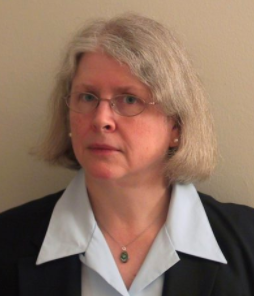 Dr. Quay Dortch is currently the Senior HAB Scientist in the NOAA Competitive Research Program, formerly the manager of two National Atmospheric and Oceanic Administration programs that provide federal funding for research on the causes and impacts and prevention, control and mitigation of harmful algal blooms. She received her B.A. in Chemistry from Randolph-Macon Woman’s College, M.S. in Chemistry from Indiana University and Ph.D. from the University of Washington in Oceanography.
Dr. Quay Dortch is currently the Senior HAB Scientist in the NOAA Competitive Research Program, formerly the manager of two National Atmospheric and Oceanic Administration programs that provide federal funding for research on the causes and impacts and prevention, control and mitigation of harmful algal blooms. She received her B.A. in Chemistry from Randolph-Macon Woman’s College, M.S. in Chemistry from Indiana University and Ph.D. from the University of Washington in Oceanography.
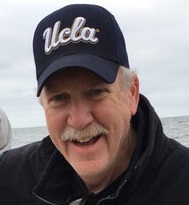 Dr. Mike Downs is cultural anthropologist with over 30 years of social impact assessment experience in federally managed fisheries. Currently serving on the Scientific and Statistical Committee of the North Pacific Fishery Management Council, Dr. Downs has done work for multiple regional councils as well as NMFS; other federal clients have included the Bureau of Ocean Energy Management, the National Park Service, the US Fish and Wildlife Service, and the US Forest Service. Dr. Downs is the owner of Wislow Research Associates (www.wislowresearch.com).
Dr. Mike Downs is cultural anthropologist with over 30 years of social impact assessment experience in federally managed fisheries. Currently serving on the Scientific and Statistical Committee of the North Pacific Fishery Management Council, Dr. Downs has done work for multiple regional councils as well as NMFS; other federal clients have included the Bureau of Ocean Energy Management, the National Park Service, the US Fish and Wildlife Service, and the US Forest Service. Dr. Downs is the owner of Wislow Research Associates (www.wislowresearch.com).
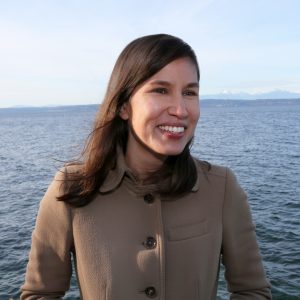 Dr. Sunny Jardine is an assistant professor at the University of Washington. She is trained as a resource and environmental economist. Her research is broadly focused on the economics of conservation and management in marine and coastal systems. Current research topics include recreational fisheries management, salmon conservation planning, the economics of harmful algal blooms, and seafood markets. She uses economic theory and econometric and numerical methods in her research. Dr. Jardine received her Ph.D. in agricultural and resource economics from the University of California at Davis in 2013. Through this workshop, she is looking forward to meeting other people working in HAB research. Link to bio.
Dr. Sunny Jardine is an assistant professor at the University of Washington. She is trained as a resource and environmental economist. Her research is broadly focused on the economics of conservation and management in marine and coastal systems. Current research topics include recreational fisheries management, salmon conservation planning, the economics of harmful algal blooms, and seafood markets. She uses economic theory and econometric and numerical methods in her research. Dr. Jardine received her Ph.D. in agricultural and resource economics from the University of California at Davis in 2013. Through this workshop, she is looking forward to meeting other people working in HAB research. Link to bio.
Dr. Timothy Davis was the Ryan Family Endowed Professor in the Department of Biological Sciences, at Bowling Green State University. Dr. Davis is a key member of the research team for the BGSU Lake Erie Center for Fresh Waters and Human Health. His research focused on plankton ecology with an emphasis on cyanobacterial harmful algal blooms in lake and coastal ecosystems including, some of the largest and most socio-economically important lakes in the world.
For complete list of workshop participants, click here.
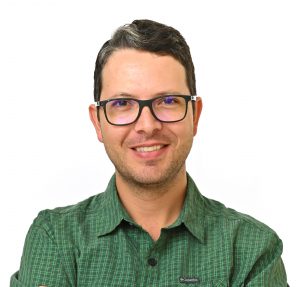
Dr. Sergio Alvarez holds a dual appointment with the Rosen College of Hospitality Management and the National Center for Integrated Coastal Research at the University of Central Florida. His expertise is in natural resource and environmental economics, with prior experience as a policy analyst/advisor. Dr. Alvarez hold a Ph.D. in Food and Resource Economics from the University of Florida. Link to bio.
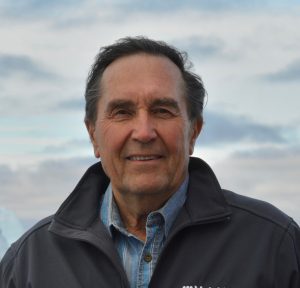 Dr. Don Anderson is a Senior Scientist in the Biology Department of the Woods Hole Oceanographic Institution. He holds three degrees from MIT – a BS in Mechanical Engineering in 1970, and a MS (1975) and PhD in Civil and Environmental Engineering in 1977. Dr. Anderson is heavily involved in national and international program development for research, monitoring, and management of red tides, marine biotoxins, and HABs. He has testified nine times before Congressional committees, and has been actively involved in legislation and appropriations related to HABs and hypoxia. Link to bio.
Dr. Don Anderson is a Senior Scientist in the Biology Department of the Woods Hole Oceanographic Institution. He holds three degrees from MIT – a BS in Mechanical Engineering in 1970, and a MS (1975) and PhD in Civil and Environmental Engineering in 1977. Dr. Anderson is heavily involved in national and international program development for research, monitoring, and management of red tides, marine biotoxins, and HABs. He has testified nine times before Congressional committees, and has been actively involved in legislation and appropriations related to HABs and hypoxia. Link to bio.
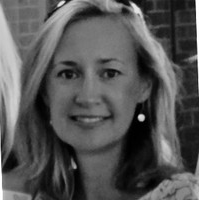 Dr. Maggie Broadwater is a program manager in the Competitive Research Program at NOAA’s National Centers for Coastal Ocean Science (NCCOS). She previously worked as a research scientist in the NCCOS Marine Forensics and Marine Biotoxins Programs in Charleston, SC. Dr. Broadwater holds a B.S. in Biochemistry from the College of Charleston, M.S. in Biomedical Sciences, and a Ph.D. in Biochemistry from the Medical University of South Carolina.
Dr. Maggie Broadwater is a program manager in the Competitive Research Program at NOAA’s National Centers for Coastal Ocean Science (NCCOS). She previously worked as a research scientist in the NCCOS Marine Forensics and Marine Biotoxins Programs in Charleston, SC. Dr. Broadwater holds a B.S. in Biochemistry from the College of Charleston, M.S. in Biomedical Sciences, and a Ph.D. in Biochemistry from the Medical University of South Carolina.
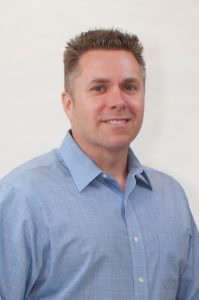 Dr. Chris Ellis is a social scientist with NOAA’s National Ocean Service. He is an adjunct faculty member at the College of Charleston, where he works with students on an array of human dimensions-based research topics. Chris received his Ph.D. in 2005 from East Carolina University. His training is in environmental sociology, survey design and implementation, recreation and tourism choice behavior, organizational behavioral networks, and social-psychological interaction with the coast. He has extensive experience in working with state and local municipalities to build capacity in coastal conservation, and community resilience. Working currently for NOAA, and formerly for both the U.S. Fish & Wildlife Service and the National Park Service, he has gained unique perspectives of how the public and institutions understand, perceive, and use natural resources, particularly in coastal areas.
Dr. Chris Ellis is a social scientist with NOAA’s National Ocean Service. He is an adjunct faculty member at the College of Charleston, where he works with students on an array of human dimensions-based research topics. Chris received his Ph.D. in 2005 from East Carolina University. His training is in environmental sociology, survey design and implementation, recreation and tourism choice behavior, organizational behavioral networks, and social-psychological interaction with the coast. He has extensive experience in working with state and local municipalities to build capacity in coastal conservation, and community resilience. Working currently for NOAA, and formerly for both the U.S. Fish & Wildlife Service and the National Park Service, he has gained unique perspectives of how the public and institutions understand, perceive, and use natural resources, particularly in coastal areas.
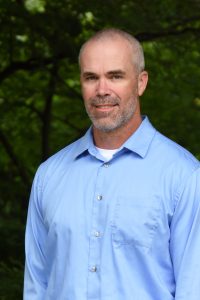 Dr. Tim Haab is Professor and Chair of the Department of Agricultural, Environmental, and Development Economics at Ohio State University. He holds a Ph.D. in Agriculture and Resource Economics from Maryland-College Park. Dr. Haab 's research and teaching focus on environmental economics, experimental economics, and applied econometrics. Recent research has looked at the impacts of harmful algal blooms in Lake Erie, the impacts of the BP/Deepwater Horizon oil spill in the Gulf of Mexico, and the impacts of marine debris on southern California beaches. In the workshop, he hopes to understand more about the extent and expected impacts of HABs, and to discuss non-market impacts to communities. Link to bio.
Dr. Tim Haab is Professor and Chair of the Department of Agricultural, Environmental, and Development Economics at Ohio State University. He holds a Ph.D. in Agriculture and Resource Economics from Maryland-College Park. Dr. Haab 's research and teaching focus on environmental economics, experimental economics, and applied econometrics. Recent research has looked at the impacts of harmful algal blooms in Lake Erie, the impacts of the BP/Deepwater Horizon oil spill in the Gulf of Mexico, and the impacts of marine debris on southern California beaches. In the workshop, he hopes to understand more about the extent and expected impacts of HABs, and to discuss non-market impacts to communities. Link to bio.
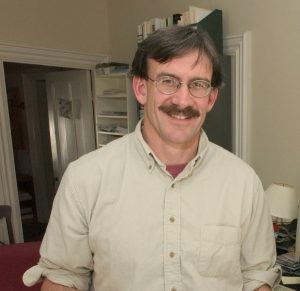 Dr. Porter Hoagland is at the Marine Policy Center of Woods Hole Oceanographic Institution and focuses his work on public policy analysis. His Ph.D. is in Marine Policy from the University of Delaware. A central question for this workshop concerns how to best inform policymakers about the consequences of HABs so that they can make decisions about appropriate responses. Dr. Hoagland is especially interested in learning about approaches by which natural scientists, economists, and social scientists can present data and analyses comprising changes (over time and space) in marine and freshwater systems due to HABs.
Dr. Porter Hoagland is at the Marine Policy Center of Woods Hole Oceanographic Institution and focuses his work on public policy analysis. His Ph.D. is in Marine Policy from the University of Delaware. A central question for this workshop concerns how to best inform policymakers about the consequences of HABs so that they can make decisions about appropriate responses. Dr. Hoagland is especially interested in learning about approaches by which natural scientists, economists, and social scientists can present data and analyses comprising changes (over time and space) in marine and freshwater systems due to HABs.
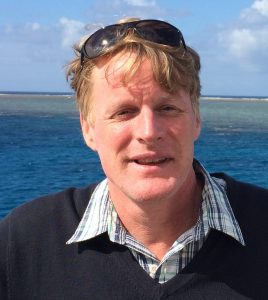
Dr. Dan Holland is affiliated with the Conservation Biology Division at the NOAA Northwest Fisheries Science Center. His research interests include techniques for estimating the counterfactual to better identify true costs of HAB events. Dr. Holland is particularly interested in ways to mitigate or avoid costs of future HAB events. His Ph.D. is in environmental and natural resource economics from the University of Rhode Island. Link to bio.
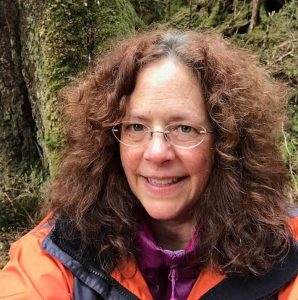 Dr. Palma Ingles is an anthropologist and photographer. She is the President of her own research company, Coastal Perspectives Research, in Anchorage, Alaska. Dr. Ingles’ research has mostly focused on the management of fisheries, wildlife, and other natural resources, along with researching impacts of ecotourism. She graduated from the University of Florida with a Ph.D. in cultural anthropology, conducting her dissertation research on ecotourism and natural resource use in the Amazon. After graduation she worked for NOAA Fisheries for seven years as an ethnographic researcher and analyst for the Southeastern US and the Caribbean. She moved to Alaska in 2009 to work for US Fish and Wildlife as a program coordinator with fisheries, in the Office of Subsistence, and left there in 2017.
Dr. Palma Ingles is an anthropologist and photographer. She is the President of her own research company, Coastal Perspectives Research, in Anchorage, Alaska. Dr. Ingles’ research has mostly focused on the management of fisheries, wildlife, and other natural resources, along with researching impacts of ecotourism. She graduated from the University of Florida with a Ph.D. in cultural anthropology, conducting her dissertation research on ecotourism and natural resource use in the Amazon. After graduation she worked for NOAA Fisheries for seven years as an ethnographic researcher and analyst for the Southeastern US and the Caribbean. She moved to Alaska in 2009 to work for US Fish and Wildlife as a program coordinator with fisheries, in the Office of Subsistence, and left there in 2017.
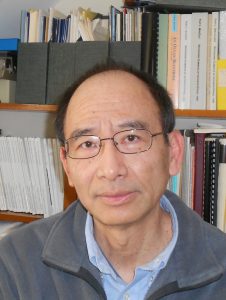 Dr. Di Jin is a Senior Scientist at the Marine Policy Center at Woods Hole Oceanographic Institution. His research interests include marine resource economics, marine safety, and integrated economic and ecological models. Dr. Jin received his Ph.D. in Economics-Marine Resources at the University of Rhode Island. He would like to learn from other participants at the workshop about recent developments and future directions of HAB socioeconomic research. Link to bio.
Dr. Di Jin is a Senior Scientist at the Marine Policy Center at Woods Hole Oceanographic Institution. His research interests include marine resource economics, marine safety, and integrated economic and ecological models. Dr. Jin received his Ph.D. in Economics-Marine Resources at the University of Rhode Island. He would like to learn from other participants at the workshop about recent developments and future directions of HAB socioeconomic research. Link to bio.
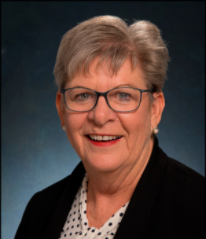 Dr. Barbara Kirkpatrick is the Executive Director for the Gulf of Mexico Coastal Ocean Observation System (GCOOS). She has more than 35 years of experience in human and environmental epidemiology and started her career as a Respiratory Care Supervisor at Duke University Medical Center before going on to receive a Master’s Degree in Health Occupations Education at North Carolina State University and a Doctorate in Educational Leadership from the University of Sarasota. In 1999, Kirkpatrick joined Mote Marine Laboratory as a staff scientist and shifted her research focus to environmental human health, particularly the respiratory effects linked to harmful algal blooms.
Dr. Barbara Kirkpatrick is the Executive Director for the Gulf of Mexico Coastal Ocean Observation System (GCOOS). She has more than 35 years of experience in human and environmental epidemiology and started her career as a Respiratory Care Supervisor at Duke University Medical Center before going on to receive a Master’s Degree in Health Occupations Education at North Carolina State University and a Doctorate in Educational Leadership from the University of Sarasota. In 1999, Kirkpatrick joined Mote Marine Laboratory as a staff scientist and shifted her research focus to environmental human health, particularly the respiratory effects linked to harmful algal blooms.
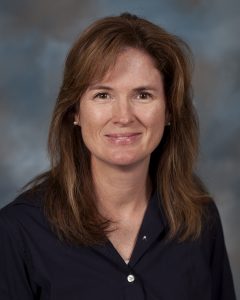
Dr. Sherry Larkin is a natural resource and environmental economist at the University of Florida. She holds a Ph.D. in agricultural and resource economics from Oregon State University. She looks forward to sharing details about measuring the economic aspects of HABs with a broader group of researchers through this workshop, with the hope that they will want to work on HABs and perhaps with others in the workshop (i.e., foster new research groups).
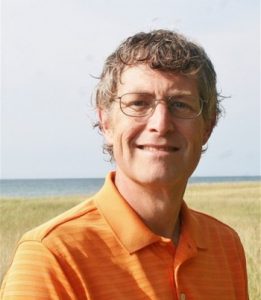 Dr. Frank Lupi is a Professor at Michigan State University in the Agricultural, Food, and Resource Economics and the Fisheries and Wildlife Departments. His research addresses the economics of ecosystem services, conservation, fisheries, wildlife, and water quality. His research includes non-market valuation, demand analyses, and Natural Resource Damage Assessments. He is currently working on valuing the impacts of HABs on Great Lakes beach visitors, and he is interested in all economic aspects of HABs. Link to bio.
Dr. Frank Lupi is a Professor at Michigan State University in the Agricultural, Food, and Resource Economics and the Fisheries and Wildlife Departments. His research addresses the economics of ecosystem services, conservation, fisheries, wildlife, and water quality. His research includes non-market valuation, demand analyses, and Natural Resource Damage Assessments. He is currently working on valuing the impacts of HABs on Great Lakes beach visitors, and he is interested in all economic aspects of HABs. Link to bio.
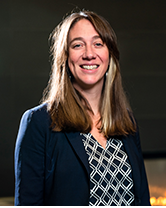 Dr. Elizabeth Marino, associate professor of anthropology and sustainability at Oregon State University - Cascades, is interested in the relationships among climate change, vulnerability, slow and rapid onset disasters, human migration, and sense of place. Her research focuses on how historically and socially constructed vulnerabilities interact with climate change and disasters. Dr. Marino is an author on the forthcoming National Climate Assessment, has worked with the Humboldt Forum in Berlin on representations of climate change and disasters, and has worked with Harvard Law on issues of environmental refugees and displaced peoples. She has also worked with the United Nations University Institute for Environment and Human Security on migration, climate change and humanitarian crisis issues. Her book "Fierce Climate, Sacred Ground: an Ethnography of Climate Change" was released in 2015. Link to bio.
Dr. Elizabeth Marino, associate professor of anthropology and sustainability at Oregon State University - Cascades, is interested in the relationships among climate change, vulnerability, slow and rapid onset disasters, human migration, and sense of place. Her research focuses on how historically and socially constructed vulnerabilities interact with climate change and disasters. Dr. Marino is an author on the forthcoming National Climate Assessment, has worked with the Humboldt Forum in Berlin on representations of climate change and disasters, and has worked with Harvard Law on issues of environmental refugees and displaced peoples. She has also worked with the United Nations University Institute for Environment and Human Security on migration, climate change and humanitarian crisis issues. Her book "Fierce Climate, Sacred Ground: an Ethnography of Climate Change" was released in 2015. Link to bio.
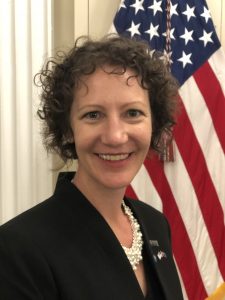 Dr. Stephanie Moore is at the Northwest Fisheries Science Center of NOAA’s National Marine Fisheries Service. She is a research oceanographer and focuses her work on the social and ecological interactions of harmful algae with climate-driven changes in marine environments. The use of advanced technologies, such as robotic biosensors, is a central component of her work to provide early warning of harmful algal blooms. Through this workshop, Dr. Moore hopes to gain a deeper understanding of the pathways through which HABs impact fishing communities and explore the potential for building resilience to future HABs through preparation, mitigation of their socioeconomic impacts, and assisting recovery of impacted communities.
Dr. Stephanie Moore is at the Northwest Fisheries Science Center of NOAA’s National Marine Fisheries Service. She is a research oceanographer and focuses her work on the social and ecological interactions of harmful algae with climate-driven changes in marine environments. The use of advanced technologies, such as robotic biosensors, is a central component of her work to provide early warning of harmful algal blooms. Through this workshop, Dr. Moore hopes to gain a deeper understanding of the pathways through which HABs impact fishing communities and explore the potential for building resilience to future HABs through preparation, mitigation of their socioeconomic impacts, and assisting recovery of impacted communities.
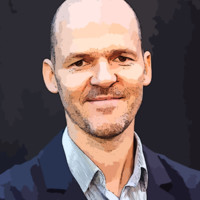 Dr. Steve Newbold is in the Department of Economics at the University of Wyoming. His research interests include environmental and natural resource economics, bio-economic modeling, non-market valuation, and econometrics. He received his Ph.D. in Ecology with an emphasis in Environmental Policy Analysis from the University of California Davis. Dr. Newbold is currently working on grant-funded research on “Valuing satellite data for harmful algal bloom early warning systems” Through this workshop, he hopes to learn more about the socio-economic damages caused by HABs in different regions of the country and to make connections with other researchers working in this area. Link to bio.
Dr. Steve Newbold is in the Department of Economics at the University of Wyoming. His research interests include environmental and natural resource economics, bio-economic modeling, non-market valuation, and econometrics. He received his Ph.D. in Ecology with an emphasis in Environmental Policy Analysis from the University of California Davis. Dr. Newbold is currently working on grant-funded research on “Valuing satellite data for harmful algal bloom early warning systems” Through this workshop, he hopes to learn more about the socio-economic damages caused by HABs in different regions of the country and to make connections with other researchers working in this area. Link to bio.
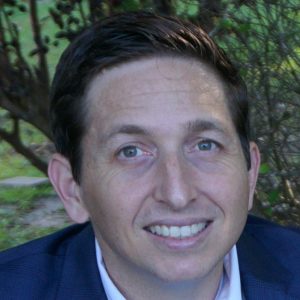 Dr. Daniel Petrolia is a professor in the Dept. of Agricultural Economics at Mississippi State University and teaches graduate courses in environmental and welfare economics and mathematical economics. Most of his research focuses on the economics of coastal resources and natural hazards, including flood and wind insurance and mitigation; valuation of coastal wetlands, barrier islands, and ecosystem services; and consumer preferences for Gulf seafood. Dan is Co-Editor of Applied Economic Perspectives & Policy, chair of the AAEA Land, Water, and Environmental Economics (ENV) Section, and a past Director of the Southern Agricultural Economics Association. Through the workshop, he hopes to gain a better understanding of the issues surrounding HABs.
Dr. Daniel Petrolia is a professor in the Dept. of Agricultural Economics at Mississippi State University and teaches graduate courses in environmental and welfare economics and mathematical economics. Most of his research focuses on the economics of coastal resources and natural hazards, including flood and wind insurance and mitigation; valuation of coastal wetlands, barrier islands, and ecosystem services; and consumer preferences for Gulf seafood. Dan is Co-Editor of Applied Economic Perspectives & Policy, chair of the AAEA Land, Water, and Environmental Economics (ENV) Section, and a past Director of the Southern Agricultural Economics Association. Through the workshop, he hopes to gain a better understanding of the issues surrounding HABs.
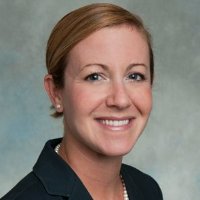 Dr. Emily Pindilli is an Economist and the Natural Resource Economics lead at the U.S. Geological Survey’s Science and Decisions Center in Reston, Virginia. She has a B.A. in economics from James Madison University, a M.S. in environmental science and policy from George Mason University, and a Ph.D. in environmental policy focusing on environmental economics from George Mason. Emily focuses on a diverse portfolio of environmental and informational economics research topics including: the value of scientific information; ecosystem services assessment and valuation; methods to integrate multi-disciplinary analyses to support land use decision-making; lifecycle analyses of resource development and conservation; and environmental markets. She is actively researching societal impacts of freshwater cyanobacteria HAB events and the value of information associated with key information products. Link to bio
Dr. Emily Pindilli is an Economist and the Natural Resource Economics lead at the U.S. Geological Survey’s Science and Decisions Center in Reston, Virginia. She has a B.A. in economics from James Madison University, a M.S. in environmental science and policy from George Mason University, and a Ph.D. in environmental policy focusing on environmental economics from George Mason. Emily focuses on a diverse portfolio of environmental and informational economics research topics including: the value of scientific information; ecosystem services assessment and valuation; methods to integrate multi-disciplinary analyses to support land use decision-making; lifecycle analyses of resource development and conservation; and environmental markets. She is actively researching societal impacts of freshwater cyanobacteria HAB events and the value of information associated with key information products. Link to bio
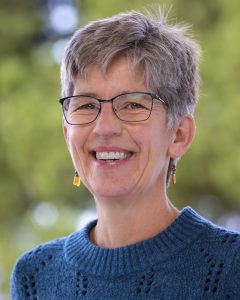
Dr. Carrie Pomeroy is a Research Social Scientist with the Institute of Marine Sciences, University of California, Santa Cruz. Her work addresses the social, economic and cultural aspects -- the “human dimensions” -- of marine systems as they affect and are affected by environmental, sociocultural, economic and regulatory factors. Her current work focuses on building capacity to address socioeconomic information needs and objectives for fisheries management, coordinating ocean space use, ensuring a safe and sustainable seafood supply, and adapting to climate change. She has conducted social science research on the human dimensions of HABs locally and regionally and contributed to Harmful Algal Research and Response: A Human Dimensions Strategy (Bauer, ed. 2006).
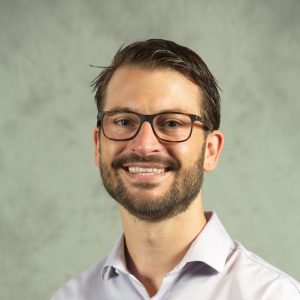
Dr. Bryan Parthum is an environmental economist at the EPA’s National Center for Environmental Economics. His research includes nonmarket valuation, hedonic price analysis, and benefit-cost analysis of government programs. He holds a Ph.D. in Agricultural and Applied Economics from the University of Illinois. As HABs present short-run (daily) dangers to nearby humans that have lasting net effects on nearby communities, Dr. Parthum is interested in Identifying ways, through this workshop, in which we can measure and appropriately model short-run behavioral responses to HABs will strengthen discussion with policy makers who are interested in mitigating damages from these events. Link to bio.
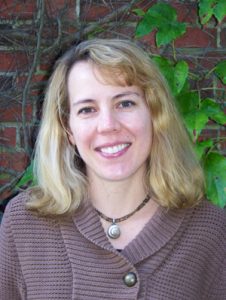
Dr. Mindy Richlen is a Research Specialist in the Biology Department of the Woods Hole Oceanographic Institution. She holds a Ph.D. in Biology from Boston University. Her research interests include ecology and molecular biology of phytoplankton taxa responsible for harmful algal blooms, particularly questions regarding the determinants of bloom structure, the biogeography of species and strains, and impacts of climate change on the range and risks of HABs. Link to bio.
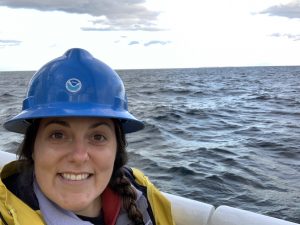 Dr. Mary Kate Rogener is contract support to NOAA's Competitive Research Program. She holds a Ph.D. in Oceanography from the University of Georgia. She has helped inform and guide relevant harmful algal bloom and hypoxia science priorities, policies, and projects through identification and application of stakeholder needs.
Dr. Mary Kate Rogener is contract support to NOAA's Competitive Research Program. She holds a Ph.D. in Oceanography from the University of Georgia. She has helped inform and guide relevant harmful algal bloom and hypoxia science priorities, policies, and projects through identification and application of stakeholder needs.
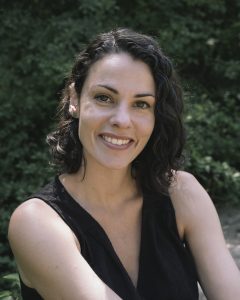 Dr. Tarsila Seara is an Assistant Professor and Marine Affairs Program Coordinator in the Department of Biology and Environmental Science at the University of New Haven. Her area of expertise is fisheries social science and her research is specifically concerned with generating information about the socio-economic, cultural, and psychological aspects of fishery resource use that can be applied into decision-making. Dr. Seara is particularly interested in research that directly informs and contributes to the implementation of ecosystem-based approaches in fisheries management. Currently, her work is focused mostly on the U.S. Caribbean (Puerto Rico and USVI) and she also has extensive knowledge and current involvement in research on fishing communities in the Northeast region. Link to bio.
Dr. Tarsila Seara is an Assistant Professor and Marine Affairs Program Coordinator in the Department of Biology and Environmental Science at the University of New Haven. Her area of expertise is fisheries social science and her research is specifically concerned with generating information about the socio-economic, cultural, and psychological aspects of fishery resource use that can be applied into decision-making. Dr. Seara is particularly interested in research that directly informs and contributes to the implementation of ecosystem-based approaches in fisheries management. Currently, her work is focused mostly on the U.S. Caribbean (Puerto Rico and USVI) and she also has extensive knowledge and current involvement in research on fishing communities in the Northeast region. Link to bio.
 Dr. Kevin Sellner, recently retired from Sr. Scholar position at Hood College in Frederick, MD, has studied HABs and HCBs for the past 35 years, primarily in the Chesapeake watershed. He was the first ECOHAB Program Manager and is currently a co-lead for an Interstate Technology and Regulatory Council HCB Management and Control Practices open access portal to be posted in March, 2021. Link to bio.
Dr. Kevin Sellner, recently retired from Sr. Scholar position at Hood College in Frederick, MD, has studied HABs and HCBs for the past 35 years, primarily in the Chesapeake watershed. He was the first ECOHAB Program Manager and is currently a co-lead for an Interstate Technology and Regulatory Council HCB Management and Control Practices open access portal to be posted in March, 2021. Link to bio.
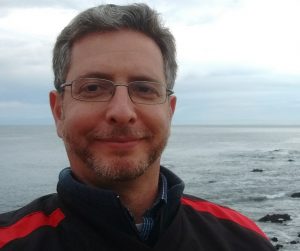 Marc Suddleson is a HAB program manager in the NOAA Competitive Research Program in Silver Spring Maryland. He has overseen the creation and management of national research programs for over 20 years building effective partnerships between federal labs, universities, state and tribal agencies and industry to develop and implement harmful algae monitoring, alert, prediction and response systems.
Marc Suddleson is a HAB program manager in the NOAA Competitive Research Program in Silver Spring Maryland. He has overseen the creation and management of national research programs for over 20 years building effective partnerships between federal labs, universities, state and tribal agencies and industry to develop and implement harmful algae monitoring, alert, prediction and response systems.
The workshop included the following case studies:
- Great Lakes - Cyanobacteria
- Gulf of Maine - Alexandrium spp.
- Gulf of Mexico - Karenia Brevis
- U.S. West Coast - Pseudo Nitzschia spp.
- U.S. Tropical Regions - Ciguatera
A library of related publications, compiled by the HAB Socioeconomics Planning Committee, is available to researchers and students by request. An annotated bibliography (with abstracts as the annotations and including digital object identifiers) of the library holdings can be found here: HAB Socioeconomic Workshop Bibliography with Abstracts.
